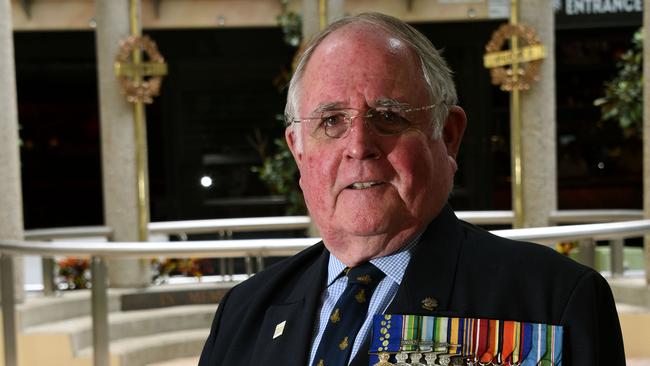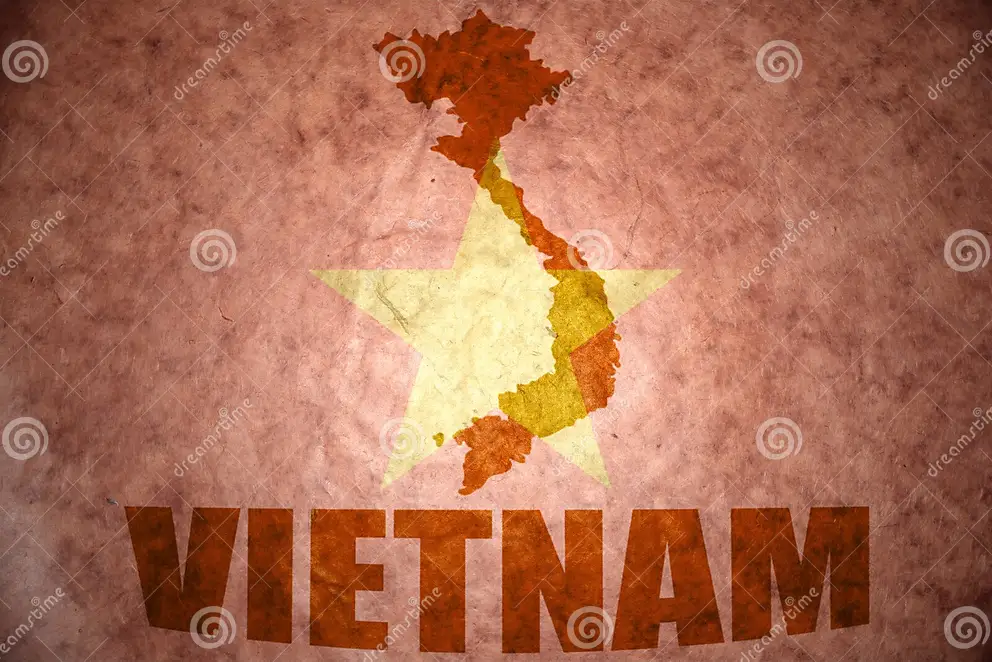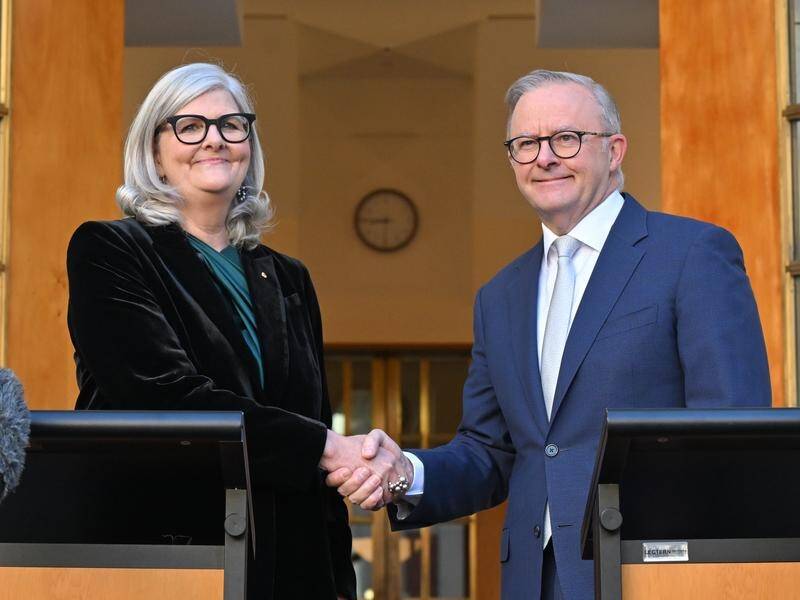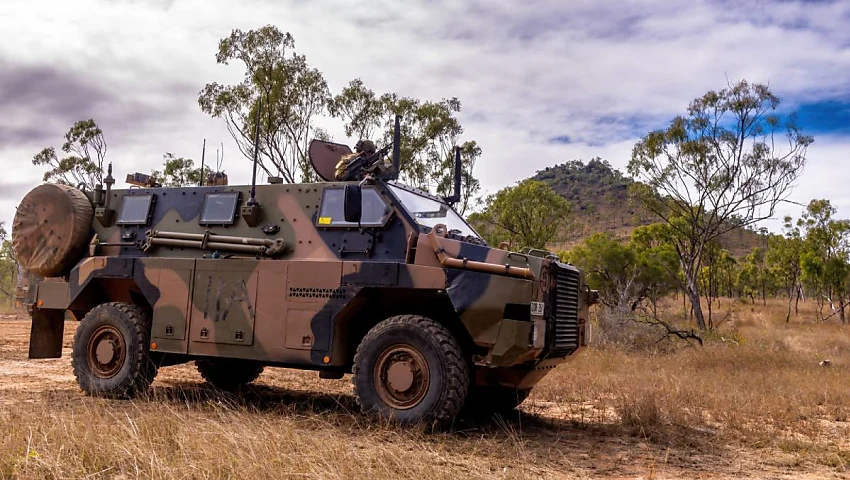Australia’s new Amphibious Armoured Combined Arms Brigade must be able to meet the most demanding land challenges in Australia’s Area of Primary Defence Interest. Does it have all the required capabilities?
Ever since the release of this proposed acknowledgment, my anger has only intensified. My Frontline and inbox are overflowing with messages of disgust. Sub-branch presidents and secretaries alike are expressing vehement opposition to any political interference in ANZAC Day.
One RSL sub-president responded to a member’s inquiry about why this travesty was occurring with a bleak truth: “While I sympathize with your outrage, we’re shackled by the government’s dictates. They dictate the rules for current serving members’ participation, including the inclusion of a Welcome to Country.”
If this is indeed the reality, then we are doomed to witness ANZAC Day and its solemn promise to honour the fallen being hijacked by those we’ve entrusted to safeguard its sanctity and the memory of those who sacrificed for our freedom.
Below is an email from Roger Wickham just one of the many.
CLICK LINK
Following the rejection of the proposal to grant Indigenous Australians a Voice to Parliament in a 60:40 referendum outcome, it has been disclosed by the Australian Electoral Commission that over $80 million was expended by various groups advocating for both sides of the issue.
The “Yes” campaign, which supported the proposal, outspent the “No” campaign by more than double. Approximately $55 million was spent by the proponents of the referendum, while the opposing groups spent upwards of $25 million. Under the law, any donations exceeding $15,200 are required to be disclosed.
Australians for Indigenous Constitutional Recognition, leading the pro-Voice campaign (Yes23), emerged as the top spender, allocating $43.8 million towards their cause, with donations totalling $47.5 million. The University of New South Wales (UNSW), housing the Uluru Statement from the Heart, received $11.12 million in donations, spending $10.3 million.
On the opposing side, Australians for Unity (also known as Fair Australia) spent $11.1 million, while Advance Australia, a conservative political lobby group, spent $10.3 million, despite receiving only $1.3 million in declarable donations. Clive Palmer’s company, Mineralogy, invested $1.93 million against the Voice proposal.
Additionally, the Voice No Case Committee, Recognise a Better Way group, and other entities combined spent $188,356 opposing the referendum.
Noteworthy donations to the “Yes” campaign came from Silver River Investment Holdings, with $250,000 each from Riley Street Car Park Pty Ltd and Harbig Properties Pty Ltd. The largest individual contribution to the “Yes” campaign came from the Paul Ramsay Foundation, which donated $7.01 million.
Corporations such as ANZ, Commonwealth Bank, Westpac, Woodside Energy, BHP, Rio Tinto, Wesfarmers, Woolworths, Telstra, and Qantas, among others, supported the pro-Voice campaigns with significant contributions. Several unions, including the Australian Education Union and the Australian Council of Trade Unions, also donated to the cause.
Former Prime Minister Malcolm Turnbull contributed $50,000 to the “Yes” campaign, while the progressive campaign group GetUp! received $1.71 million in donations, spending $1.37 million on its pro-Voice efforts.
Furthermore, independent MPs and organizations like Waverley Council also supported the “Yes” campaign financially.
The rejection of the proposal has sparked varied interpretations, with proponents of the “No” campaign emphasizing concerns about division, while others advocate for focusing on addressing societal issues directly.
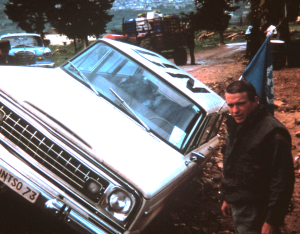 LAST Saturday three unarmed UN military observers and a Lebanese interpreter were injured by an explosion near Rmeish inside Lebanon’s southern border with Israel.
LAST Saturday three unarmed UN military observers and a Lebanese interpreter were injured by an explosion near Rmeish inside Lebanon’s southern border with Israel.
One was an ADF member serving with the UN Interim Force in Lebanon.
The Israel Defence Forces (IDF) staunchly denied initial reports it was responsible.
That Friday the IDF claimed to have eliminated a “senior Hezbollah commander” in a targeted drone strike in the town of Bazouriye, 32km to the northwest.
The IDF alleged Ali Naim directed attacks against Israeli civilians and released footage of that strike.
On January 12, 1988 ADF Captain Peter McCarthy was killed in South Lebanon when his jeep struck an anti-tank landmine.
CLICK LINK to continue reading.
This is a three-part documentary ‘VIETNAM: 50 Years Remembered’ Each video runs for about 50 minutes.
Episode 1
Episode 2
Episode 3
Australia’s Defence Minister, Richard Marles, highlighted the necessity of reshaping all three branches of the Australian Defence Force (ADF) in response to the escalating threat posed by China in the Indo-Pacific region. Speaking at The Sydney Institute on April 4, Marles emphasized the imperative nature of tough decisions to realign the ADF strategy, as outlined in the 2023 Defence Strategic Review (DSR).
Marles acknowledged the challenges posed by a Defence budget shortfall of $42 billion, hindering the implementation of crucial projects. Despite projections indicating a rise in Defence spending, certain initiatives are slated for postponement or cancellation to maximize effectiveness in countering the evolving security landscape.
The DSR prioritises the establishment of long-range strike capabilities, bolstering air defence systems, and acquiring Virginia Class nuclear submarines from the United States, a key partner in the AUKUS alliance. Additionally, plans involve ramping up military production in Queensland and collaborating with U.S. Marines by sharing forward operating bases in the Northern Territory.
To facilitate these strategic imperatives, Marles underscored the inevitability of restructuring all branches of the ADF. This reallocation of resources aims to fund critical projects essential for deterring potential adversaries from hostile actions against Australia.
Marles lamented the inadequacy of the Defence budget, stressing that for every $100 earmarked for expenditure, the Defence sector was planning to spend $140, creating a significant shortfall. This financial disparity undermines the viability of numerous projects, leading to uncertainty regarding their fruition and potential losses incurred.
Describing the current situation as unsustainable, Marles emphasized the need to stem financial losses within the ADF. He warned that the prevailing fiscal challenges not only impact industry stakeholders but also erode morale within the Defence sector, impeding long-term planning efforts.
In conclusion, Marles stressed the imperative of making difficult decisions to ensure the ADF’s readiness to confront emerging security threats effectively. Despite fiscal constraints, Australia remains committed to bolstering its defence capabilities to safeguard its interests in the Indo-Pacific region.
Prime Minister Anthony Albanese’s decision to appoint Samantha Mostyn as Australia’s next Governor-General has sparked widespread dismay and criticism. Mostyn’s nomination, approved by King Charles, has left many Australians questioning the government’s judgment and priorities.
Mostyn, a businesswoman and gender equality advocate, will succeed David Hurley, who has served as Governor-General since 2019. Albanese’s announcement of Mostyn’s appointment was met with scepticism and disappointment among citizens.
The Prime Minister’s attempt to paint Mostyn as a beacon of modern Australia was met with cynicism, with many viewing her selection as a political move rather than a reflection of her qualifications. Critics argue that her background in business and advocacy does not adequately prepare her for the ceremonial and representational duties of the Governor-General.
Despite Albanese’s praise for Mostyn’s leadership qualities, many remain unconvinced, citing concerns about her lack of experience in public service and ceremonial roles. Some view her appointment as a token gesture toward gender equality, rather than a genuine effort to find the most qualified candidate for the position.
Moreover, the timing of Mostyn’s appointment has raised eyebrows, with Australia facing numerous challenges both domestically and internationally. Critics worry that her lack of experience in governance and diplomacy could undermine the effectiveness of the Governor-General’s office during these turbulent times.
While Mostyn expressed gratitude for the opportunity, her reassurances failed to quell the scepticism surrounding her appointment. Many Australians remain sceptical about her ability to effectively represent their interests and uphold the traditions of the office.
As the nation prepares for a new era under Mostyn’s tenure, the prevailing sentiment among many is one of disillusionment and concern about the direction of Australia’s highest office.
During Exercise Diamond Shield 24, the Australian Defence Force has commenced comprehensive air defence operations, executing both day and night missions. This live training initiative underscores the ADF’s commitment to enhancing its readiness and capabilities across various operational scenarios. By conducting exercises around the clock, ADF personnel are honing their skills in detecting, intercepting, and neutralizing potential threats to national security, ensuring heightened vigilance and preparedness in safeguarding Australian airspace. Through Exercise Diamond Shield 24, the ADF demonstrates its dedication to maintaining a robust defence posture, capable of responding effectively to evolving challenges and safeguarding the nation’s sovereignty and interests.
Students were challenged with complex mission scenarios while flying F-35 Lightning II aircraft, with the assistance of KC-30A multi-role tankers and E-7A airborne early warning and control aircraft.
Group Captain Martin Parker, director of Exercise Diamond Shield 24, said the exercise involved dynamic scenarios to defend Australia from attack.
“Exercise Diamond Shield 24 is defensive in nature and we give the course participants really wicked problems,” GPCAPT Parker said.
“They come together to find the answers to these challenging scenarios and then they implement their solutions.
“It is effectively passing best practice from one generation to another whilst also giving them the environment to learn and thrive.”
Exercise Diamond Shield 24 forms part of the six-month-long Air Warfare Instructor Course (AWIC), which combines exercises with academic instruction and briefings on the ground.
The Australian federal government has introduced the 2024 Australian Defence Export Catalogue, replacing the former Australian Defence Sales Catalogue. Minister for Defence Industry Pat Conroy revealed this comprehensive collection of defence industry products and services from across Australia. This year’s catalogue features over 300 Australian defence industry businesses, indicating a 20% increase from the previous edition. It also lists surplus equipment from the Australian Defence Force, including ASLAV and Bushmaster Protected Mobility Vehicles, available for export.
Minister Conroy emphasized the government’s commitment to supporting local defence industry businesses in accessing global markets, creating jobs, and integrating Australian innovation into global supply chains. The catalogue underscores the government’s dedication to promoting exports and showcasing Australian technology and capability worldwide. It includes a section on government support for defence industry companies through various agencies. Additionally, it invites interested foreign governments to explore surplus ADF equipment suitable for their needs by contacting the Australian Defence Export Office. Overall, the government aims to enhance defence industry opportunities, promote Australian exports, and integrate industry into the global supply chain to boost economic prosperity and job creation in Australia.




